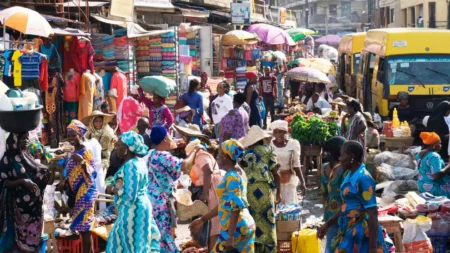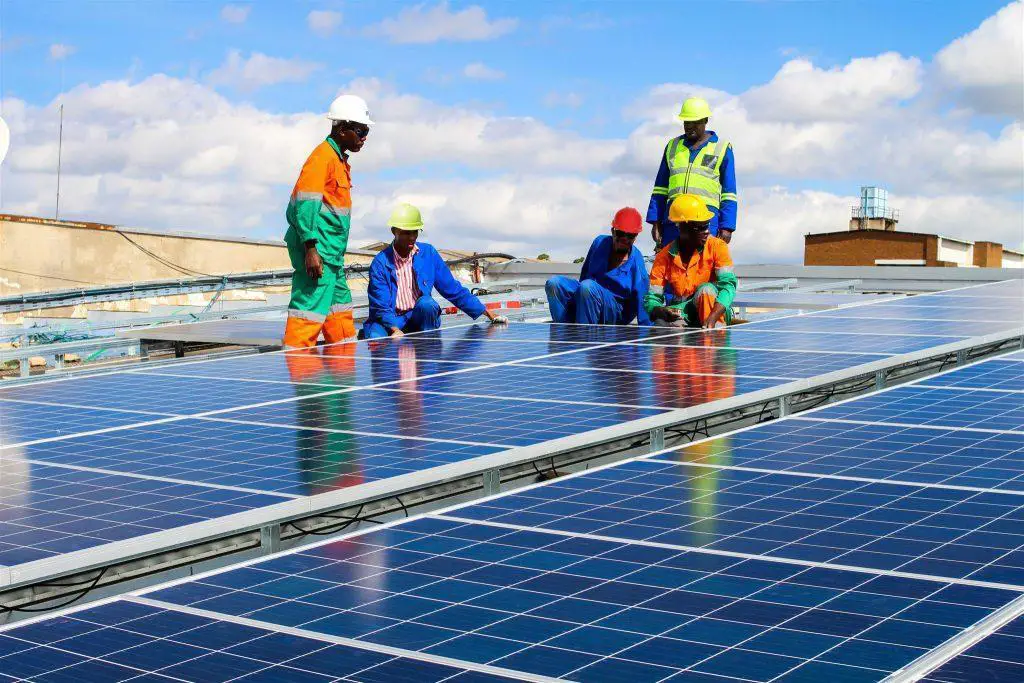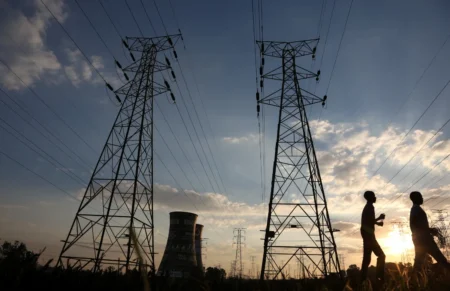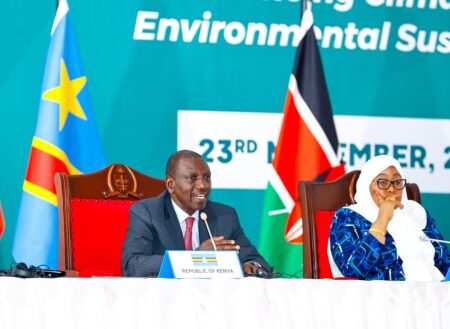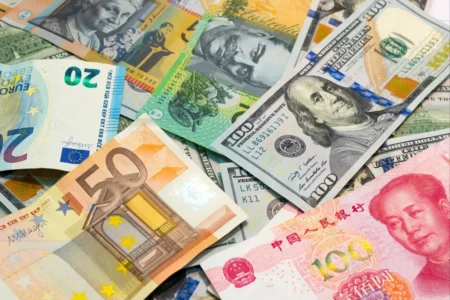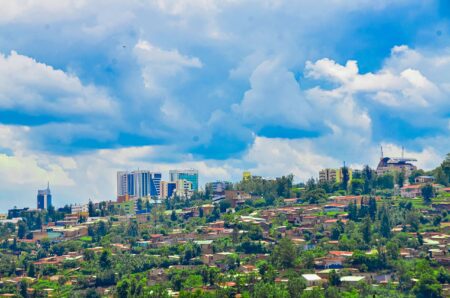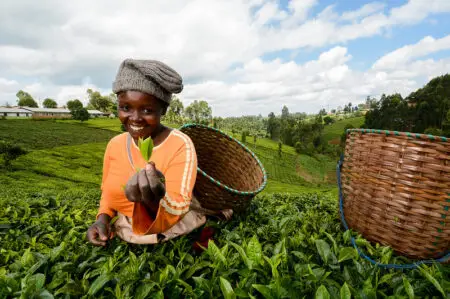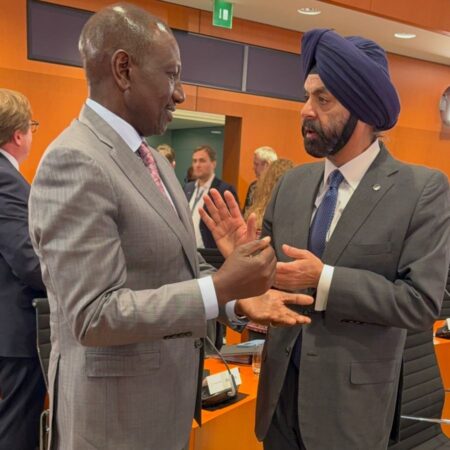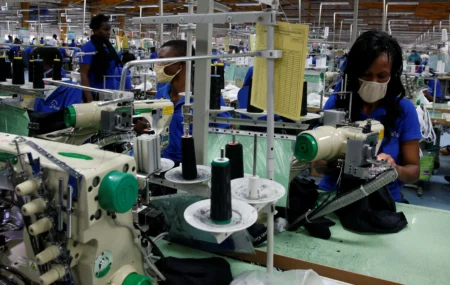- Stanbic PMI Report: Mixed performance as Kenya’s agriculture, construction offset manufacturing decline
- Uganda’s land management gets a tech makeover to boost transparency
- Nigeria’s output dips fastest in 19 months on a sharp rise in costs
- Apple faces growing backlash over Congo exploitation
- Why East Africa is staring at higher wheat prices in 2025
- Nairobi Gate SEZ pumps $7 million into Kenya’s agro-processing industry
- What impact will the US election have on Africa?
- Russia and Tanzania unite to double trade, boost Africa market access
Browsing: World Bank
- Like many other countries, the IMF has noted that Nigeria’s economy faces a complex external environment and wide-ranging domestic challenges.
- External financing (market and official) is scarce, and global food prices have surged, reflecting the repercussions of conflict and geo-economic fragmentation.
- Per-capita growth in Nigeria has stalled, and poverty and food insecurity are high, exacerbating the cost-of-living crisis, according to the global lender.
Nigeria’s economy is not yet out of the woods, the International Monetary Fund (IMF) has indicated, with a potential economic crisis despite government interventions to improve the economy.
This is even as the country’s real GDP is projected to grow by three per cent this year compared to last year’s projection of 2.9 per cent.
Like many other countries, the IMF has noted that Nigeria faces a complex external environment and wide-ranging domestic challenges.
External financing (market and official) is scarce, and global food prices have surged, …
- Solar energy, alongside wind power, has become the cheapest way to meet the growing demand for electricity, according to the World Bank.
- World Bank’s Demetrios Papathanasiou says many developing countries have some of the world’s best solar and wind resources.
- He expresses his optimism about the ability of global countries to tap into advances in solar energy and make dramatic gains.
Solar energy is expected to surpass coal as the world’s most available energy source by 2027. The African countries with the most immense global potential are critical drivers of this projection.
The World Bank, in its latest energy report update, says that of the nearly 675 million people who still live without electricity worldwide, more than 80 per cent, or 567 million people, live in sub-Saharan Africa.
It says that 2030 solar mini-grids could bring high-quality, uninterrupted power to 380 million people.
“This is if governments and …
- Africa’s low electricity access stresses the need to double more than the efforts to meet SGD 7.1 by 2030.
- In Kenya, data by the lender shows 71 per cent of the population had access to electricity in 2021, compared to about 14 per cent in 2000.
- World Bank further identifies a stark divide in global access to electricity between urban and rural areas.
Sub-Saharan African states have made tremendous progress in electricity access in the past two decades, with the access rate rising from 25 per cent in 2000 to 48 per cent in 2020.
However, according to the World Bank, countries must double their electrification efforts to bring electricity to all by 2030, meeting Sustainable Development Goal Seven.
“Global access to electricity is increasing at a slow pace, with the progress towards achieving universal access to electricity being slow over the last 20 years,” …
- There is a Climate Funding gap of 40 billion dollars in blue carbon, yet no Kenyan firms are undertaking it.
- According to the World Bank, Kenya remains vulnerable to frequent climatic shocks that pose significant economic risks.
- The East African country has been gravely affected by changing weather patterns and a fall in disposable income available for necessities.
Despite their considerable potential, Kenya is foregoing billions of dollars in untapped climate financing opportunities. While many startups are entering this sector, industry experts argue that the current figure remains insufficient to combat climate change adequately.
Pangea Accelerator, an investment platform that provides funding for startups and small and medium enterprises (SMEs), says that the region needs to grow the number of startups, fully focusing on the environment. The Founder of Pangea, Jonas Tesfu, says that as a country, Kenya needs to have a lot of innovative businesses join climate change initiatives …
- Kenyans in the diaspora sent home $4.19 billion in 2023 as remittance inflows to the East African country hit an all-time high.
- The high numbers signal that Kenyans living and working in the diaspora defied the inflationary pressures they still experienced to send more money back home.
- Since the height of the COVID-19 pandemic, many Kenyans in the diaspora have had to cut spending to navigate inflationary pressures and afford to send money back home.
Kenyans in the diaspora sent home $4.19 billion in 2023 as remittance inflows to the East African country hit an all-time high, boosting foreign exchange reserves and support for families in the wake of tough economic times.
According to the Central Bank of Kenya (CBK), the figures are up by four per cent compared to the $4.02 billion sent in 2022.
“The inflows were strong in December 2023 at $372.6 million compared to $355.0 million …
Africa will be the second fastest-growing regional economy in 2024. Over 10 African countries will experience substantial GDP growth. In October 2024, the International Monetary Fund emphasized Africa’s pivotal role in global economic development and resilience.
Africa could face economic headwinds this year. However, some of the continent’s brightest spots are lighting up the economic prospects. According to the International Monetary Fund, six of the top 10 performing nations globally are projected to come from Africa in 2024.…
- In 2023, Kenya’s economy experienced real GDP growth, surging from 4.8% in 2022 to an estimated 5 per cent.
- Kenya’s agriculture, which had grappled with severe drought, recovered with critical crops, such as tea and coffee, displaying remarkable resilience.
- High cost of living, exchange rate pressures, and global economic uncertainties remain persistent risks to growth this year.
In 2023, Kenya’s economy strengthened, defying persistent challenges as highlighted in the World Bank’s 28th edition of the Kenya Economic Update (KEU). Despite facing continued hurdles, East Africa’s biggest economy experienced an acceleration in real GDP growth, surging from 4.8 per cent in 2022 to an estimated 5 per cent in 2023.
This economic performance is a testament to Kenya’s ability to navigate adversities and build a foundation for sustainable economic growth.
Agriculture helped revive Kenya’s economy in 2023
A key factor contributing to Kenya’s revival of economic performance in 2023 was the …
- World Bank foresees $12 billion in support for Kenya between 2023 and 2026.
- This financing is subject to approval as East Africa’s economic powerhouse continues to depend on borrowing to bridge budget gaps in the wake of high recurrent expenditures and revenue shortfalls.
- The World Bank said it is fully committed to support Kenya in its journey to become an upper-middle-income country by 2030.
Kenya stands to benefit from up to $12 billion in financing from the World Bank over the next three years, as indicated by the global lender, ensuring continued support for the debt-saddled country.
This is subject to approval, the World Bank noted on Monday, as East Africa’s economic powerhouse continues to depend on borrowing to bridge budget gaps in the wake of high recurrent expenditures and revenue shortfalls. The World Bank stated that it is fully committed to supporting Kenya in its journey to become an…
- High protection and heavy import dependency have left industries in Africa poorly prepared for international competition.
- The tendency of many African governments to assign a leading role to the state in creating and operating manufacturing firms makes industries in Africa hard to thrive.
- For decades, investments by African governments are often made with little regard to efficiency and the managerial capacity in target industries.
Africa Industrialization Day on November 20 is here, yet the region’s skies remain smokeless. While the region is endowed with $82 trillion worth of discovered natural resources, with the potential to contribute $30 billion a year in government revenue over the next 20 years, this potential remains untapped.
Africa’s failed industrialization
Sadly, Africa’s industrialization has been failing if not stagnating as many nations continue turning into customers of established manufacturing zones in China, Europe and India. For instance, Africa exports around 69 per cent of the …
Digital Transformation
The 2024 casino industry is ready to undergo a strong digital transformation. Online casinos are also rapidly gaining traction, utilizing the latest advances in technology such as AR and VR to enhance gaming. It is aimed at designing smooth platforms that offer players the excitement of traditional casinos but in a virtual environment.
With the ongoing digital wave altering the industry landscape, it comes as no surprise that more and more establishments are moving towards prioritizing online accessibility, thus, allowing players to enjoy their favorite games from wherever he or she is – whether it be on handheld or desktop devices. Moving forward, not only will there be lots more interesting casino games to play in the form of slots, as well as classics like blackjack, poker, and baccarat, but the ways to play them will also be more immersive and innovative, offering a variety of unique themes, …





